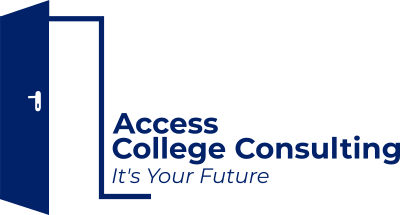
It’s Junior Year – College and All of Its Opportunities Are Not Far Away!
“May your choices reflect your hopes, not your fears.”
-Nelson Mandela
11th Grade Is an Important Year
Colleges pay particular attention to your grades, activities and responsibilities this year. High school is familiar to you. Now is the opportunity to take it up another notch and show your capabilities.
Take
Challenging
Classes
There are more Advanced Placement (AP) courses available to you as a junior. Colleges want to see you challenge yourself academically. Work with your counselor and register for those APs and Honors classes that interest you, in subjects that you excel.
If you work hard and do well on the AP exam in May of junior year, these courses can open doors to more selective colleges that have higher graduation rates, offer more student support and more financial aid that are not loans.
Deepen Your Involvement! On the robotics team since 9th grade? Become a captain. Strong in English? Tutor 9th graders. Contribute your skills, your time and your effort into making your school and community an even better place to be. Colleges want to know how you spend your time. It gives them a sense of how involved you will be if you come to their school. What you choose to do is up to you!
Family Responsibilities and Work. You may have family commitments or a job outside of school and cannot do after school activities, but in colleges’ eyes, that’s ok! They know that some students have commitments that preclude them from participating in after school activities. You may not realize it but you are learning desirable skills by taking care of your siblings or having a job to help pay the bills or save money.
Take on Leadership Roles
Take the PSAT in October
As long as the PSAT is offered at your school, take it! A top PSAT score in your junior year could qualify you for a National Merit Scholarship for college. The PSAT in 11th grade is also great PRACTICE for the SAT that you will take this year. Take the time to prepare for it with practice questions and tests. Here are three websites to check out for practice tests & questions:
https://collegereadiness.collegeboard.org/psat-nmsqt-psat-10
https://collegereadiness.collegeboard.org/sat
https://www.khanacademy.org/sat
Make sure you review your results to see where your strengths are and where you could use more practice.
Think about what you want to do this summer. You have an opportunity to get some experience in areas that interest you.
- Attend an academic or enrichment program. Financial aid is often offered.
- Intern or shadow a professional in a career you want to learn more about. Many internships are paid experiences.
- You may have to get a job to help your family. That takes maturity and independence.
- Be a counselor at a summer camp and improve your leadership skills.
- If you have to take care of younger siblings all summer, it may not be what you want to do, but you will be learning leadership skills and how to be responsible for others.
Filling out your college application should be a priority this summer – The Common Application and the Coalition Application open by August 1. Don’t wait to write your personal statement and essays. Get help with Access College Consulting.
Make
Your
Summer
Plans
The College Application Process
There is a lot of information here! Bookmark this page and come back often.
The Application Process Takes Time and Effort. BE ORGANIZED!
- Get a notebook or create a folder on your computer where you save all of your college application process notes. Your notes are not only about the colleges you are considering, but also your strengths, interests and must-haves in a college. Write things down as you think of them.
- Ask questions! Have a separate page for questions that you can cross out as you get answers. There is no such thing as a bad question.
- Review your notes often!
This is a lot to take in. Bookmark this page and come back often. Check out the other grades and our Resource Page for additional information. If you have any questions, set up a free 30 minute session with us.

